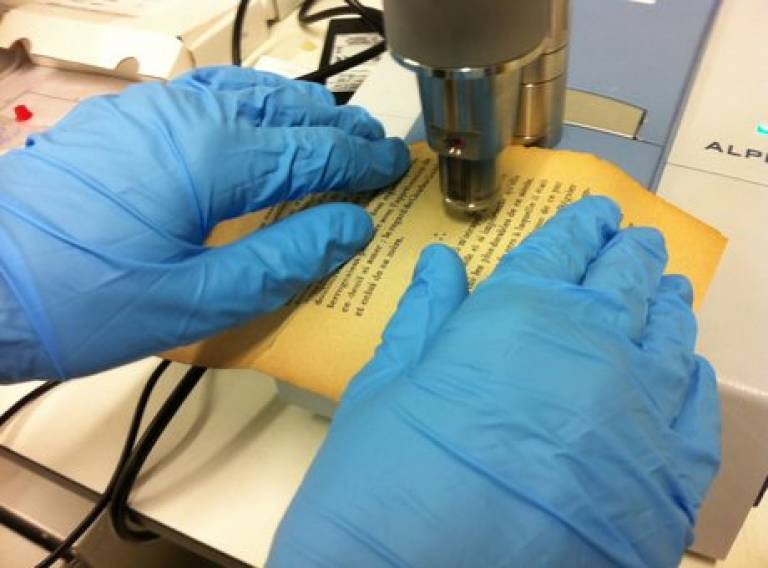Environmentally induced colour change during natural degradation of selected polymers

1 January 2014
The aim of this study was to examine the simultaneous effect of multiple degradation agents on selected polymer materials in natural environments, and the relative effect of atmospheric pollutants compared to other environmental parameters (heat, humidity and light). A complex exposure experiment was set up to investigate the colour change of 17 different types of polymers (cellulose carboxylate, polyamide, poly(vinyl chloride), polystyrene, polyethylene, polypropylene, polycarbonate, polyurethane, and melamine formaldehyde and phenol formaldehyde resins) in real time in different environmental conditions over a 2-year period at 11 sites across Europe and North Africa, sheltered from UV light and precipitation. Suitable environmental monitoring equipment, such as data loggers and gas samplers, and analytical methods to characterize sample degradation, specifically non-destructive spectrocolorimetry, were used, as colour is one of the most important properties of polymers in art and heritage contexts. A methodology based on multivariate data analysis was used for data interpretation. The results of this study suggested that light and concentration of NO2 are the most important environmental variables leading to colour change in polymer materials, and to a lesser extent the concentration of O3, while other factors such as heat, relative humidity and the concentration of SO2 were less significant. Based on the assessment of the relative contributions of light and traffic-generated pollutants to the natural ageing processes of synthetic polymers, this study enables prioritisation of environmental degradation factors in environmental management of collections and in historic material degradation studies.
Environmentally induced colour change during natural degradation of selected polymers. Polymer Degradation and Stability, 107 198-209.
Pastorelli, G., Cucci, C., Garcia, O., Piantanida, G., Elnaggar, A., Cassar, M., Strlič, M. (2014)
The full text of this article is not available through UCL Discovery.
 Close
Close

